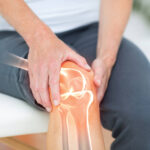Testicular health is a critical yet often neglected aspect of men’s health. Understanding the importance of testicular self-exams and being aware of potential issues is vital for early detection and effective treatment. Testicular issues can range from minor problems easily treated with medication, to more serious conditions such as cancer. Men, especially between the ages of 15 and 55, should be vigilant about their testicular health, as early detection significantly improves the outcome of serious conditions like testicular cancer.
The idea of testicular self-exams might seem daunting or even embarrassing to some, but it’s a simple, quick process that could save your life. With testicular issues, the key is early detection. Knowing what to look for and regularly performing self-exams are the first steps towards ensuring your testicular health.
The Importance of Testicular Self-Exams
Testicular health is a critical yet often neglected aspect of men’s health. Understanding the importance of testicular self-exams and being aware of potential issues is vital for early detection and effective treatment. Testicular issues can range from minor problems easily treated with medication, to more serious conditions such as cancer. Men, especially between the ages of 15 and 55, should be vigilant about their testicular health, as early detection significantly improves the outcome of serious conditions like testicular cancer.
The idea of testicular self-exams might seem daunting or even embarrassing to some, but it’s a simple, quick process that could save your life. With testicular issues, the key is early detection. Knowing what to look for and regularly performing self-exams are the first steps towards ensuring your testicular health.
Who Should Perform Self-Exams?
Men of all ages should perform regular self-exams, with a particular focus on those in the 15-55 age range.
How to Perform a Testicular Self-Exam
Perform these exams monthly in a warm bath or shower. Gently roll each testicle between the fingers and thumb, feeling for any lumps, bumps, or changes in size and texture.
How Often Should They Be Done?
Monthly self-exams are recommended. Familiarity with the normal state of your testicles makes it easier to notice any changes.
10 Testicle Issues Men Should Check For
1. Lumps or Swellings
- Symptoms: Hard, painless lumps; an enlarged testicle.
- Treatment: Consult a doctor immediately. Treatments vary from antibiotics for infections to surgical options for cancer.
2. Pain or Discomfort
- Symptoms: Dull ache, sharp pain, or a feeling of heaviness.
- Treatment: Depends on the cause, ranging from rest and support to medical intervention for serious conditions like torsion.
3. Changes in Texture
- Symptoms: Hardening or thickening of testicular tissue.
- Treatment: Immediate medical consultation to rule out cancer or other serious conditions.
4. Differences in Size
- Symptoms: One testicle significantly larger or smaller than the other.
- Treatment: Size variation is normal, but significant changes should be evaluated by a doctor.
5. Fluid Accumulation
- Symptoms: Swelling or feeling of fluid around a testicle (hydrocele).
- Treatment: May resolve on its own, but persistent cases might require surgery.
6. Varicocele
- Symptoms: Enlarged, twisted veins in the scrotum, resembling a “bag of worms.”
- Treatment: Often no treatment needed unless causing pain or fertility issues. Surgical options are available.
7. Epididymitis
- Symptoms: Pain and swelling, often with fever and urinary symptoms.
- Treatment: Antibiotics for bacterial infection and rest.
8. Testicular Torsion
- Symptoms: Sudden, severe pain, swelling, and redness.
- Treatment: A medical emergency requiring immediate surgery.
9. Hernia
- Symptoms: Bulge in the groin or scrotum, especially when straining.
- Treatment: Surgical repair is typically required.
10. Cancer
- Symptoms: Lump, swelling, pain, or ache in the lower abdomen or groin.
- Treatment: Surgery, radiation, and/or chemotherapy, depending on the stage and type.
When to Consult a Doctor for Testicle Issues
Recognizing the Signs
If during a self-exam you notice any of the following, it’s time to consult a doctor:
- Any new lump or swelling, regardless of pain
- Persistent aches or discomfort in the groin or testicles
- Changes in the size, shape, or consistency of your testicles
- Heavy or dragging feeling in your scrotum
- Any signs of infection, such as redness, warmth, or tenderness
Importance of Timely Medical Consultation
Early medical intervention is crucial. While many testicular issues are benign, conditions like testicular torsion or cancer require prompt treatment. Delaying a medical consultation can lead to complications or more invasive treatments down the line.
Maximizing Testicular Health: Lifestyle Choices and Preventive Measures
Beyond regular self-examinations and being alert to changes, certain lifestyle choices and preventive measures can significantly contribute to maintaining optimal testicular health. Understanding and implementing these can help minimize the risk of developing testicular problems.
Healthy Lifestyle Choices
Diet and Nutrition: A balanced diet rich in antioxidants and essential nutrients can boost overall health and aid in the proper functioning of all body organs, including the testicles. Foods high in zinc, such as nuts and seeds, are particularly beneficial for male reproductive health.
Regular Exercise: Regular physical activity improves circulation, overall health, and hormonal balance, which is crucial for maintaining healthy testicles and sexual function.
Avoiding Harmful Substances: Limiting alcohol intake, quitting smoking, and avoiding illicit drugs are essential. These substances can negatively affect testicular function and overall reproductive health.
Preventive Healthcare Measures
Routine Medical Check-Ups: Regular health screenings with a healthcare professional can help catch potential issues early, even if they’re not yet noticeable.
Awareness of STDs and Safe Sex Practices: Protecting against sexually transmitted diseases is crucial, as certain STDs can affect testicular health and fertility.
Temperature Regulation: Excessive heat can impact sperm production and overall testicular health. Avoiding prolonged exposure to hot environments, such as saunas or hot tubs, and opting for loose, breathable clothing can help maintain a healthy scrotal temperature.
Adopting these practices not only contributes to the health of your testicles but also enhances your overall well-being. A proactive approach to health, encompassing regular check-ups, a healthy lifestyle, and informed choices, lays the foundation for a life free from avoidable health complications. Remember, taking care of your body is an investment in your future health and happiness.
In conclusion, taking an active role in your testicular health is essential. Regular self-exams are a simple yet effective way to monitor for changes. Remember, understanding your body and recognizing when something isn’t right plays a crucial role in early detection of potential health issues. If you do notice any changes or experience symptoms, don’t hesitate to consult a doctor. In matters of health, particularly testicular health, it’s always better to be safe and seek professional advice. Taking these proactive steps not only contributes to your overall well-being but also provides peace of mind.








